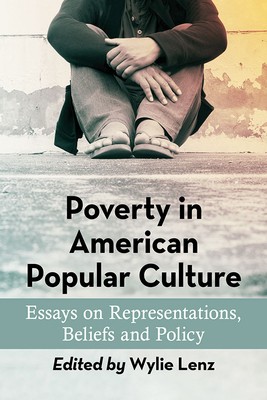
- We will send in 10–14 business days.
- Publisher: McFarland and Company, Inc.
- Year: 2020
- Pages: 282
- ISBN-10: 1476664226
- ISBN-13: 9781476664224
- Format: 15 x 22.1 x 2 cm, softcover
- Language: English
- SAVE -10% with code: EXTRA
Poverty in American Popular Culture (e-book) (used book) | bookbook.eu
Reviews
Description
In 1964, President Lyndon Johnson declared an ""unconditional war"" on poverty in the form of sweeping federal programs to assist millions of Americans. Two decades later, President Reagan drastically cut such programs, claiming that welfare encouraged dependency and famously quipping, ""Some years ago, the federal government declared war on poverty, and poverty won."" These opposing policy positions and the ideologies informing them have been well studied. Here, the focus turns to the influence of popular art and entertainment on beliefs about poverty's causes and potential cures. These new essays interrogate the representation of poverty in film, television, music, photography, painting, illustration and other art forms from the late 19th century to the present. They map when, how, and why producers of popular culture represent--or ignore--poverty, and what assumptions their works make and encourage.
EXTRA 10 % discount with code: EXTRA
The promotion ends in 18d.08:50:05
The discount code is valid when purchasing from 10 €. Discounts do not stack.
- Publisher: McFarland and Company, Inc.
- Year: 2020
- Pages: 282
- ISBN-10: 1476664226
- ISBN-13: 9781476664224
- Format: 15 x 22.1 x 2 cm, softcover
- Language: English English
In 1964, President Lyndon Johnson declared an ""unconditional war"" on poverty in the form of sweeping federal programs to assist millions of Americans. Two decades later, President Reagan drastically cut such programs, claiming that welfare encouraged dependency and famously quipping, ""Some years ago, the federal government declared war on poverty, and poverty won."" These opposing policy positions and the ideologies informing them have been well studied. Here, the focus turns to the influence of popular art and entertainment on beliefs about poverty's causes and potential cures. These new essays interrogate the representation of poverty in film, television, music, photography, painting, illustration and other art forms from the late 19th century to the present. They map when, how, and why producers of popular culture represent--or ignore--poverty, and what assumptions their works make and encourage.


Reviews